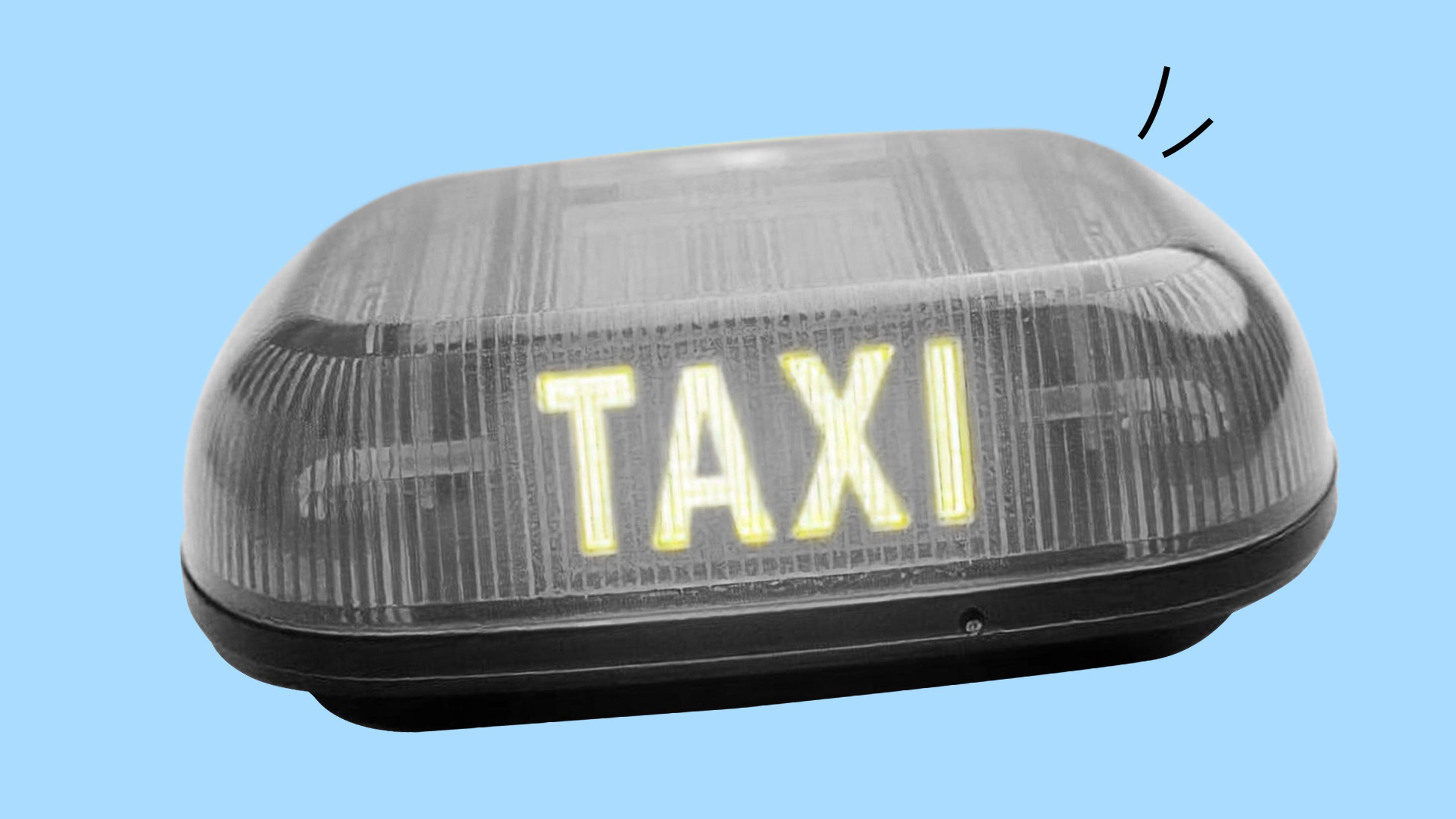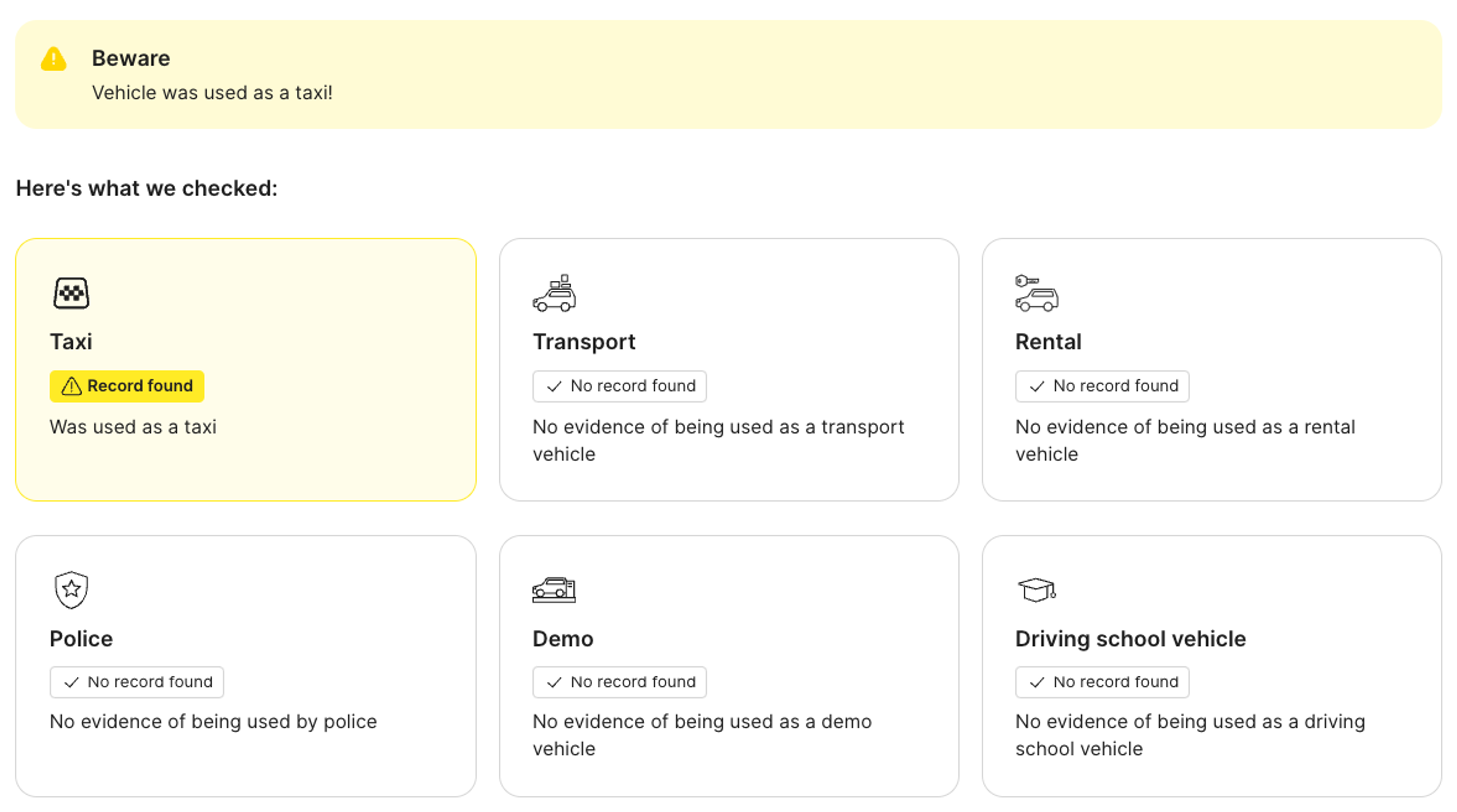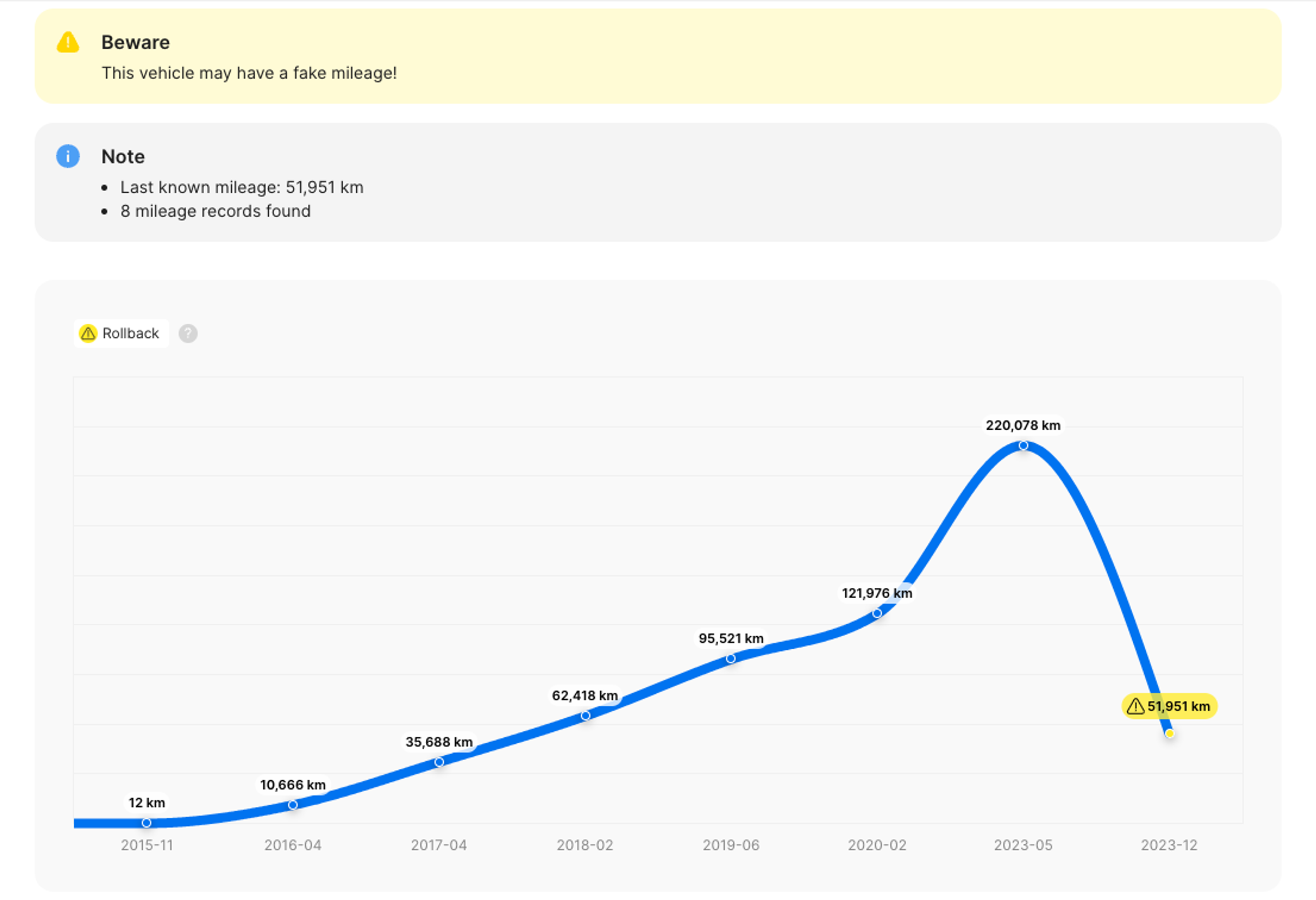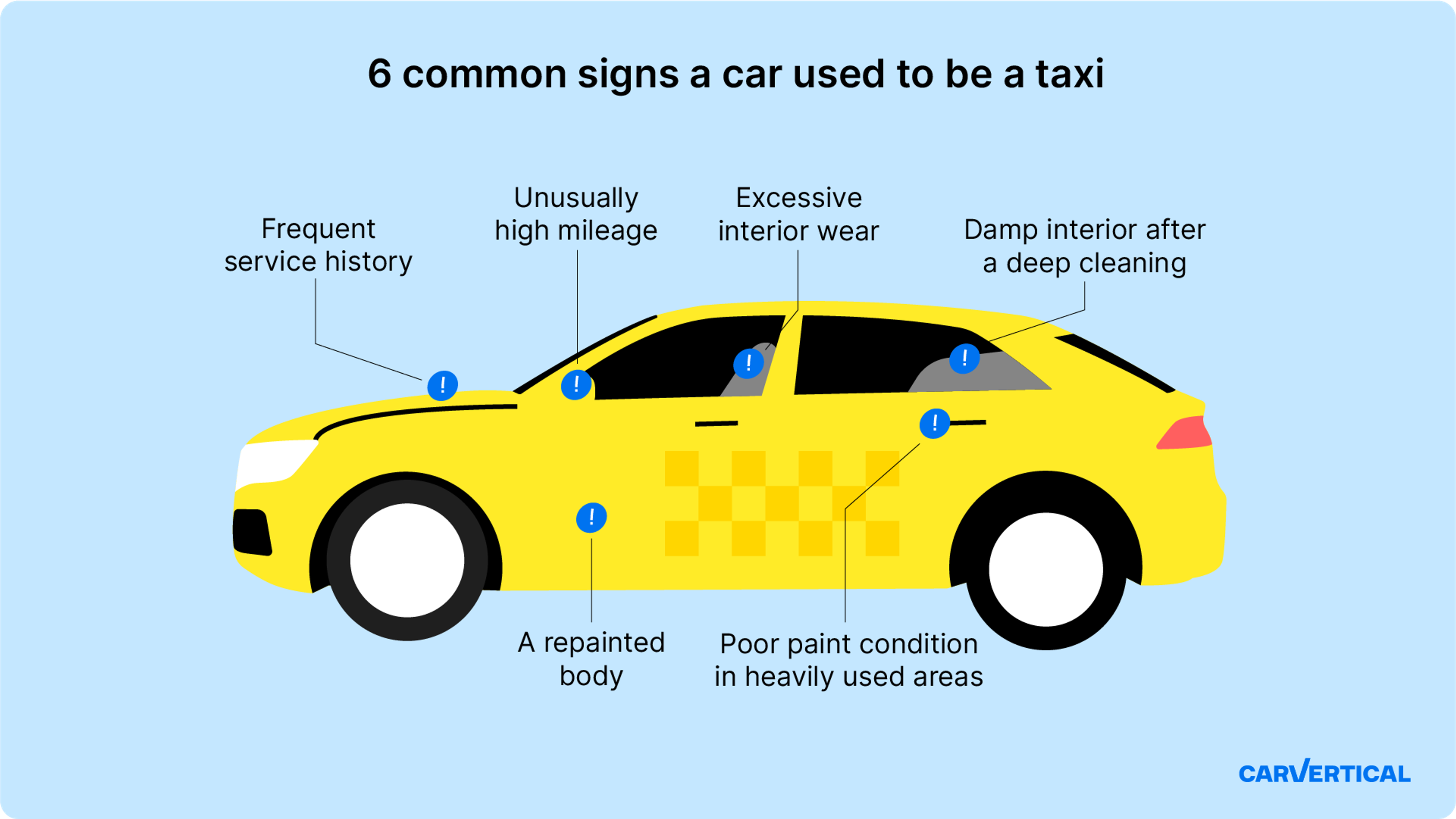
Buying a used car can be a great way to save money, but it’s important to know exactly what you're getting. Some used cars could be ex-taxis, police vehicles, or former rentals – cars that typically have more wear and tear and are worth less.
Sellers don’t always disclose this information, which can make it difficult for buyers to make informed decisions. That’s why it’s crucial to know how to spot a former taxi, ensuring you invest in a reliable vehicle that won’t surprise you with costly repairs later on.

Looks can be deceiving!
Don't risk your safety - check it with carVertical first
Why buying an ex-taxi car can be a bad idea
Taxis in service go through a pretty unique set of driving conditions that differ a lot from regular personal vehicles.
They often operate in 12 hour shifts, with their engines running for longer periods, sometimes idling for hours. This constant use doesn't allow the engine to rest, which naturally leads to greater wear and tear over time.
Possible issues with purchasing an ex-taxi car:
- High mileage: Taxis accumulate mileage very quickly, often driving three to four times more than typical cars within the same age range.
- Engine wear from idling: Idling for longer periods stops the engine from reaching optimal (higher) temperatures, which causes carbon buildup in the fuel system and combustion chambers.
- Worn suspension and clutch: Frequent stop-and-go driving in urban environments strains the suspension system and clutch, leading to premature wear.
- Higher insurance costs: Insurance companies often classify ex-taxis as higher-risk vehicles, which results in increased premiums for you.
- Undetected wear: While taxis are usually well maintained, it’s impossible for routine maintenance to address all the potential issues arising from intensive use.
Ex-taxis can be worth the buy. They’re often cheaper than other cars, but it’s crucial to know you’re buying an ex-taxi and to be aware of the risks.
You can check if a car was used as a taxi with carVertical
Vehicle history reports are an extremely valuable tool for used car buyers. carVertical can provide extensive reports that reveal a car's past usage, including whether it was used as a taxi, police vehicle, or rental car.

We can tell you a lot more, however, including damage records, ownership changes, past photos, and mileage history.
Verifying the mileage is absolutely critical when buying a used car, because mileage can be a strong indicator of the vehicle’s condition. As a matter of fact, high-mileage vehicles (such as ex-taxis), may be more likely to have a fake mileage to appear more appealing to buyers.

According to our Transparency Index, mileage fraud affects a significant number of used cars, making a history report even more essential.

Check your registration number
Avoid costly problems by checking a vehicle's history. Get a report instantly!
6 signs a car may have been a taxi in the past
Taxis often operate in 12 hour shifts, with their engines running for longer periods, sometimes idling for hours. This constant use doesn't allow the engine to rest, which naturally leads to greater wear and tear over time.
Certain models are more likely to be ex-taxis than others. These include the Mercedes-Benz E-Class, Toyota Prius, Toyota Corolla, Škoda Octavia, or Škoda Superb. Yet there are more signs the car you’re looking at was a taxi once.

1. Frequent service history
Taxi companies often follow strict maintenance schedules to keep their vehicles on the road as much as possible. If a car's service records seem more frequent than usual, it could be a sign it had a past life as a taxi. Regular servicing can definitely be positive, but excessive maintenance may indicate heavy usage.
2. Higher mileage
A car with unusually high mileage for its age is a clear red flag. Taxis accumulate kilometers quickly due to constant operation – up to 3-4x higher mileage than regular cars.
Be wary of vehicles with mileage that doesn’t seem to match up with their condition or age – remember that odometer rollbacks are a common practice among unscrupulous sellers. For more information on detecting mileage fraud, you can read this guide.
3. Excessive interior wear
Intensive use from being used as a taxi leads to noticeable extra wear on interior components. Check carefully for signs such as:
- Worn steering wheel, gear stick, and pedals
- Worn seats, especially rear seats (which usually show significantly less wear than front seats)
- Drill holes or any adhesive/glue residue on the dashboard where taxi meters and other equipment may have been installed.
- Wear on the rear door trims and back of the front seats from frequent passenger use.
4. Specific body color
Many taxis are bought or painted in distinctive colors, such as yellow, to be easily identifiable. If a car has an unusual color, it could have been repainted to hide its taxi history. Carefully inspect the paintwork for any inconsistencies, especially around the door frames. Be cautious of cars with vinyl wrap as well – sellers sometimes use this cost-effective method to change a car's appearance.
5. Paint condition in specific areas
Check the condition of the paint around rear door handles and entry points, as these areas may have more scratches or worn paint due to constant use. Additionally, look for darker spots or marks on the roof where a taxi sign might have been mounted, or on the doors where stickers are often applied
6. The interior may still be wet
Before selling their cars, taxi companies often deep-clean the interiors, sometimes removing seats and carpets for pressure washing. If you notice any moisture, dampness, or a strong cleaning agent smell inside the car, it might be a freshly cleaned ex-taxi.
Is it worth buying an ex-taxi car?
Ex-taxis can be worth the buy. They’re often cheaper than other cars, but it’s crucial to know you’re buying an ex-taxi and be aware of the risks.
These cars are much more likely to need repairs due to accelerated wear and tear. Furthermore, the resale value of ex-taxis is generally lower, which could affect you in the future.
If you're still considering an ex-taxi, a professional inspection is an important step to help you assess its condition thoroughly. However, in the majority of cases, it might be wiser to invest a bit more in a vehicle without a taxi service history to guarantee reliability and give greater peace of mind.
Frequently asked questions

Article by
Evaldas Zabitis
Evaldas has been writing since middle school and has had a passion for cars for as long as he can remember. Right after getting his driver’s license, he spent all of his savings on shoddy cars so he could spend time fixing, driving, and selling them. Evaldas is always interested in automotive technical innovations and is an active participant in automotive community discussions.
